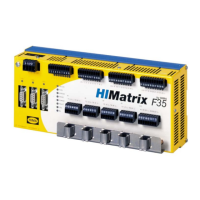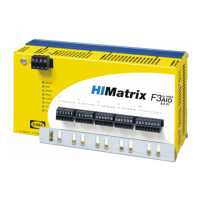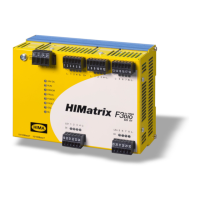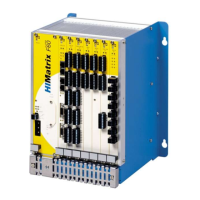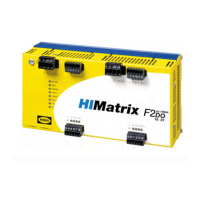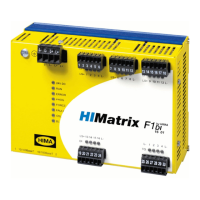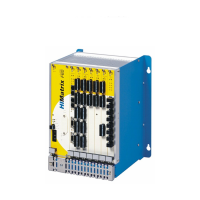3 Product Description F30 01
Page 12 of 52 HI 800 145 E Rev. 2.00
3.1.1.1 Reaction in the Event of a Fault
If the device detects a fault on a digital input, the user program processes a low level in
accordance with the de-energized to trip principle.
The device activates the FAULT LED.
In addition to the channel signal value, the user program must also consider the corresponding
error code.
The error code allows the user to configure additional fault reactions in the user program.
3.1.1.2 Line Control
Line control is used to detect short-circuits or open-circuits and can be configured for the F30
system, e.g., on EMERGENCY STOP inputs complying with Cat. 4 and PL e in accordance with
EN ISO 13849-1.
To this end, connect the digital outputs DO 1 through DO 8 of the system to the digital inputs DI
of the same system as follows:
EMERGENCY STOP 1
EMERGENCY STOP 2
EMERGENCY STOP switches in
accordance with EN 60947-5-1 and
EN 60947-5-5
Figure 2: Line Control
The controller pulses the digital outputs to detect short-circuits and open-circuits on the lines
connected to the digital inputs. To do so, configure the Value [BOOL] -> system variable in
SILworX or the DO[0x].Value system signal in ELOP II Factory. The variables for the pulsed
outputs must begin with channel 1 and reside in direct sequence, one after the other.
If the following faults occur, the FAULT LED located on the front plate of the controller blinks,
the inputs are set to low level and an (evaluable) error code is created:
Cross-circuit between two parallel wires.
Invalid connections of two lines (e.g., DO 2 to DI 3),
Earth fault on one wire (with earthed ground only).
Open-circuit or open contacts, i.e., including when one of the two EMERGENCY STOP
switches mentioned above has been engaged, the FAULT LED blinks and the error code is
created.
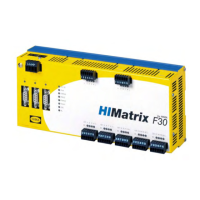
